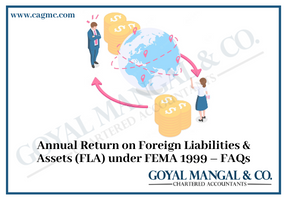 The Reserve Bank of India (RBI) is the governing body for regulating and supervising the banks. The banking Regulation Act, of 1949 is an Act that provides a framework for regulating the banks of India. The Act came into force on 16th March 1949. This Act gives RBI the power to control the behavior of banks. This Act was passed as the Banking Companies Act, of 1949. It did not apply to Jammu and Kashmir until 1956. This Act monitors the day-to-day operations of the bank. Under this Act, the RBI can license banks, put regulation over shareholding and voting rights of shareholders, look over the appointment of the boards and management, and lay down the instructions for audits. RBI also plays a role in mergers and liquidation. This article briefly describes the RBI cautions against unauthorized forex trading platforms,
The Reserve Bank of India (RBI) is the governing body for regulating and supervising the banks. The banking Regulation Act, of 1949 is an Act that provides a framework for regulating the banks of India. The Act came into force on 16th March 1949. This Act gives RBI the power to control the behavior of banks. This Act was passed as the Banking Companies Act, of 1949. It did not apply to Jammu and Kashmir until 1956. This Act monitors the day-to-day operations of the bank. Under this Act, the RBI can license banks, put regulation over shareholding and voting rights of shareholders, look over the appointment of the boards and management, and lay down the instructions for audits. RBI also plays a role in mergers and liquidation. This article briefly describes the RBI cautions against unauthorized forex trading platforms,
The Overview of the Reserve Bank of India and its Functions
The Reserve Bank of India was established in the year 1935 in accordance with the Reserve Bank of India Act, of 1934. It is the central Bank of India entrusted with a multidimensional role. It performs important monetary functions from the issue of currency notes to the maintenance of monetary stability in the country. Initially, the Reserve Bank of India was a private shareholder’s company that was nationalized in 1949. Its affairs are governed by the Central Board of Directors appointed by the Government of India. Since its inception, the Reserve Bank of India had played an important role in the economic development and monetary stability of the country.
Section 36 mentions the powers of RBI. The Reserve Bank may prohibit banking companies from entering into a particular transaction and can advise the banking company. It can also assist the banking company by granting loans or advances under Section 18 and directing the banking company to call for a meeting of its directors to discuss the matters of the company. It can appoint officers to observe how the affairs of the banking company are conducted.
RBI issues the list of Unauthorized Forex Trading Platforms
It is clarified that resident persons can undertake forex transactions only with authorized persons and for permitted purposes, in terms of the Foreign Exchange Management Act, 1999 (FEMA). Furthermore, while permitted forex transactions can be executed electronically, they should be undertaken only on ETPs authorized for the purpose by the RBI or on recognized stock exchanges (National Stock Exchange of India Ltd., BSE Ltd., and Metropolitan Stock Exchange of India Ltd.) as per the terms and conditions specified by the RBI from time to time. It is also clarified that remittances for margins to overseas exchanges / overseas counterparties are not permitted under the Liberalized Remittance Scheme (LRS) framed under the FEMA
Can a resident undertake Forex Transaction?
Yes, you can undertake the transactions provided these are undertaken with authorized persons and for permitted actions as per Foreign Exchange Management Act, 1999 (FEMA). Furthermore, if found dealing with unauthorized persons and unapproved actions, you are eligible for penal action under this act, presuming yourself as a resident in India.
Who is Authorized Person as per RBI?
RBI authorizes a person like an entity to deal in forex. An authorized dealer, say, all public sector banks, all leading private sector banks. Furthermore, The approved money exchanger is even recommended by banks or approved by RBI under sub-section (1) of section 10 of FEMA.
Electronic Trading Platform (ETP)
An electronic Trading Platform (ETP) means any electronic system, other than a recognized stock exchange, on which transactions in eligible instruments like securities, money market instruments, foreign exchange instruments, derivatives, etc. take place.
Current Account Transaction under Foreign Exchange under RBI
The following are the current account transaction under Foreign Exchange under RBI:
- Payments connected to foreign trade, other current business, services, and short-term banking and credit facilities in the ordinary course of business. Opening of L/C, guarantees.
- Payments are due as interest on loans and as net income from investments, remittances for living expenses of parents, spouses, and children residing abroad.
- Expenses in connection with foreign travel, education, and medical care of parents, spouses, and children.
Conclusion
With the profusion of thousands of Chinese products enabling instant cash disbursements to eagerly waiting for Indian customers who have been delayed enormously by Indian/foreign banks in credit operations, the instant cheating of the Rupee. Thousands of Crores siphoned off and caught the eyes of the regulatory authority/all types of governments or law regulating authorities like police, CBI, or ED. This guideline for a commoner by RBI is nothing unusual since RBI is the harbinger of foreign exchange, previously very harsh and now, a bit kinder in allowing foreign exchange operations. Credit card frauds by foreigners online/offline opened up the eyes of these august bodies.





